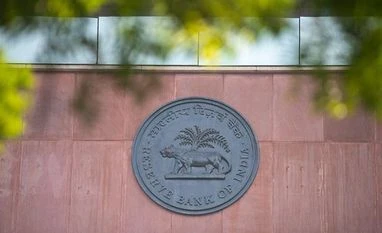New auditors: Reserve Bank of India clarifies on tenure, eligibility norms
Industry lobbies have called for a review of the circular issued on April 27
)
Photo: Shutterstock
Amidst both support to as well as calls for a review of its new norms for appointing auditors by financial institutions, the Reserve Bank has stuck to its stance but has clarified certain doubts in the industry on the tenure and eligibility criteria among others.
The central bank on April 27, 2021, had issued a circular on 'Guidelines for appointment of statutory central auditors (SCAs)/statutory auditors (SAs) of commercial banks (excluding RRBs), UCBs and NBFCs (including HFCs)'.
While the circular has been lapped by domestic audit firms, including their apex regulatory body ICAI, industry lobbies have called for a review saying it will increase cost and also doubting the ability of domestic audit firms to handle large accounts. Significantly, the big four--KPMG, Deloitte, EY and PwC which are all foreign entities--have been conspicuously silent so far, in spite of the fact that the new norms will hit their business hard.
The RBI has reiterated that the April 27 circular was issued with the basic objectives of putting in place ownership-neutral regulatory norms, ensuring independence of auditors, avoiding conflict of interest in their appointments, and to improve the overall quality and standards of audit in RBI-regulated entities.
These guidelines will also help streamline the procedures to appoint statutory auditors across all its regulated entities and also ensure that appointments are made in a timely, transparent and effective manner, the central bank has reiterated in its clarifications, issued over the weekend, as a set of frequently asked questions.
Also Read
On whether the one-year time gap between any non-audit work by SCAs/SAs for entities under RBI regulations or any audit/non-audit work for its group entities has to be ensured for all group entities or only for RBI regulated entities in the group, the RBI has clarified that by group entities it means only RBI regulated entities in the group.
"However, if an audit firm engaged with audit/non-audit work for the group entities not regulated by RBI, is being considered by an RBI regulated entity in the group for appointment as SCAs/SAs, the board of the RBI regulated entity has to ensure that there is no conflict of interest and also the independence of auditors," it said.
It has also said if any partner of a chartered accountant firm is a director in an RBI regulated entity in a group, the said firm shall not be appointed as SCA/SA of any of the RBI regulated entities in the group. However, if an audit firm is being considered by any of the RBI regulated entities in a group to appoint as SCAs/SAs, whose partner is a director in any of the group entities which are not regulated by RBI, the said audit firm has to appropriately disclose it to the board.
It has further clarified that the one-year gap between any non-audit work for them or any audit/non-audit work for group entities before appointing an audit firm as SCAs/SAs is applicable prospectively from FY23.
If an audit firm is involved in some non-audit work with an entity and/or any audit/non-audit work in other RBI regulated entities in a group and completes or relinquishes the said assignment prior to the date of appointment as SCA/SA for FY 22, the said audit firm is eligible for appointment as SCA/SA for FY22, it said.
"It is reiterated that the one-year time gap should be at least one year after completion of the audit work as SCA/SA between any non-audit work by an SCA/SA for RBI regulated entities or any audit/non-audit work for its group entities not under RBI regulation, it said.
Whether existing SCAs/SAs can continue if they do not fulfill the eligibility criteria but are yet to complete their original tenure of appointment, it said the existing SCAs/SAs can do so, including as joint auditors, only if they fulfilled the eligibility criteria and have not completed the stipulated tenure of three years as SCAs/SAs of the said entity.
However, the RBI allowed entities regulated by it to take a few quarters of FY22 to appoint SCAs/SAs and joint auditors.
On whether an audit firm doing audit of any company/entity with large exposure to the entity is prohibited from being appointed as SCA/SA of the entity, it said the new circular does not prohibit an audit firm from being appointed as SCAs/SAs of entities with large exposure.
The new norms only stipulate that this aspect should also be explicitly factored while assessing independence of the auditor. In this regard, the board shall see that there is no conflict of interest and the independence of auditors is ensured, it concluded.
(Only the headline and picture of this report may have been reworked by the Business Standard staff; the rest of the content is auto-generated from a syndicated feed.)
More From This Section
Don't miss the most important news and views of the day. Get them on our Telegram channel
First Published: Jun 14 2021 | 7:21 PM IST
